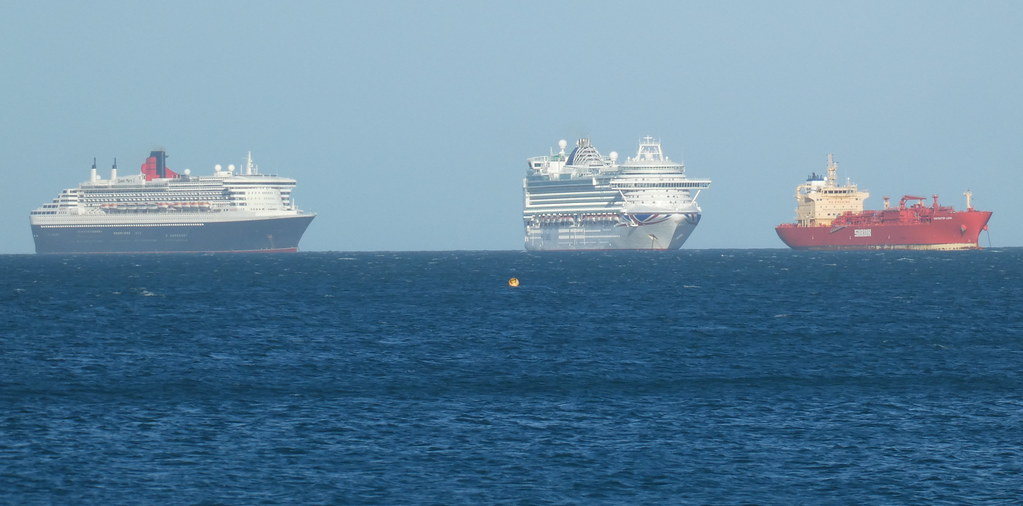Climate Finance Crisis: Why Africa Needs a Global Shipping Levy Now

The world’s leading economists support a $150–$300 carbon levy on shipping to finance climate action and promote equity. Credit: Andrew Bone.
Table of Contents
2025 may become a landmark year for climate finance, especially for vulnerable regions such as Africa. As the planet heats up, a global carbon levy on shipping emissions could provide the urgent funding required to support adaptation and mitigation efforts.
The International Maritime Organization (IMO) is currently in the final stages of negotiating this levy, which targets the 1 billion tonnes of annual emissions from global shipping. The initiative aims to accelerate decarbonization in the maritime sector and provide up to USD 60 billion in annual finance for countries most affected by climate change, many of which are in Africa.
For Africa, this isn’t just a financial mechanism—it’s a lifeline. Climate-induced droughts, floods, wildfires, and food insecurity are escalating across the continent, threatening millions of lives and livelihoods. Many landlocked countries, although not directly involved in shipping, will also feel the ripple effects of climate policies, including carbon pricing.
What Is the Global Shipping Levy?
The shipping levy is a market-based mechanism that would place a carbon price on each tonne of greenhouse gases emitted by the international shipping industry. This price is expected to range between $150 to $300 per tonne of CO₂, with revenue allocated for both in-sector (shipping) and out-sector (climate action in vulnerable countries) projects.
According to experts at Carbon Market Watch, not all proposals are equally ambitious. The leading proposal, backed by Belize and Pacific Island nations, calls for a $150 levy with equitable revenue sharing. In contrast, the EU’s $100 proposal lacks clarity on fund distribution, especially for non-EU, vulnerable nations.
Why Africa Must Act Now
African nations like Kenya, Nigeria, and Liberia have shown leadership by joining the pro-levy bloc. This is a critical time for the continent to amplify its collective voice in upcoming negotiations, especially during the IMO’s February 17–21 meeting in London.
Many African nations are already grappling with the impacts of climate change, yet they contribute the least to global emissions. A strong levy would provide dedicated climate finance for adaptation projects, such as renewable energy infrastructure, disaster preparedness systems, and sustainable agriculture practices across the continent.
The Stakes Are High
Failure to pass a robust levy could mean relying on weaker proposals that might only raise $0.5 to $11 billion annually—far short of what’s needed. Worse, the shipping industry, one of the world’s biggest polluters, may escape without paying its fair share.
The IMO’s decisions will determine how soon—and how fairly—shipping decarbonization happens. This is not just a technical debate but one with major implications for global justice and sustainable development.
Shared Responsibility, Shared Benefits
The climate crisis requires global cooperation. Europe, the United States, and Asia must support fair financing mechanisms that include both maritime and non-maritime developing countries. Current proposals that recycle revenues only into domestic projects, like the EU’s Emissions Trading System (ETS), fall short of these responsibilities.
International partnerships must include fair distribution of climate finance to all affected states, regardless of their geographic location or shipping role.
Conclusion: Africa’s Climate Future Is on the Line
Climate justice means holding major polluters accountable and providing sufficient funds to the most vulnerable. A strong global shipping levy is one of the few immediate opportunities to do both.
As negotiations enter their final phase, African leaders must demand a mechanism that ensures equitable distribution of revenues, supports mitigation and adaptation projects, and acknowledges the continent’s unique climate vulnerabilities.
We are at a crossroads. The choices made now will either protect the future of millions—or leave them behind in the wake of climate disaster.
Read the full article on African Arguments.
Internal link: Climate section on African Arguments
External resource: UN Report on Shipping Levy
find more on voiceafricadaily.com